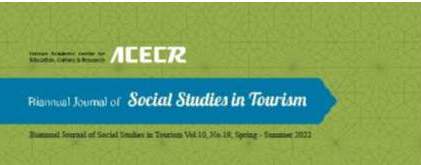All
--- Humanities ---
Political Science
Social Sciences
Quran and Hadith Sciences
Ethics
Religious Studies
History and Philosophy of Science
Jurisprudence of law
Psychology
Educational Science
Library and Information Science
Physical Education
Geography
Econometrics
Accounting
Finance
Management
Literature and languages
--- Basic Sciences ---
Science
Meteorology
Statistics and Probability
Mathematics
Geology
Biology
The Environmental
chemistry
Physics
--- Engineering ---
Electrical, Electronic and Computer Engineering
Industrial Engineering
Civil Engineering
Information Technology
Mechanical Engineering
Marine Engineering
Materials and Metallurgy Engineering
Chemical, oil, polymer engineering
Mining Engineering
Earthquake engineering
water engineering
Biomedical Engineering
Passive Defense
Multidisciplinary
--- Agricultural , Natural Resources , Veterinary ---
Water and Soil Science
Agricultural Economics
ecology
Horticulture
Biotechnology and plant genetics
Forestry
Agricultural Mechanization
Crop Science
Plant Protection
Animal Science
Fisheries
Wood and paper industries
Food industry
Extension Science
Watershed management, desert, environment, pasture
Veterinary
--- Arts and Architecture ---
Art
Architecture
--- Medicine ---
Medical


